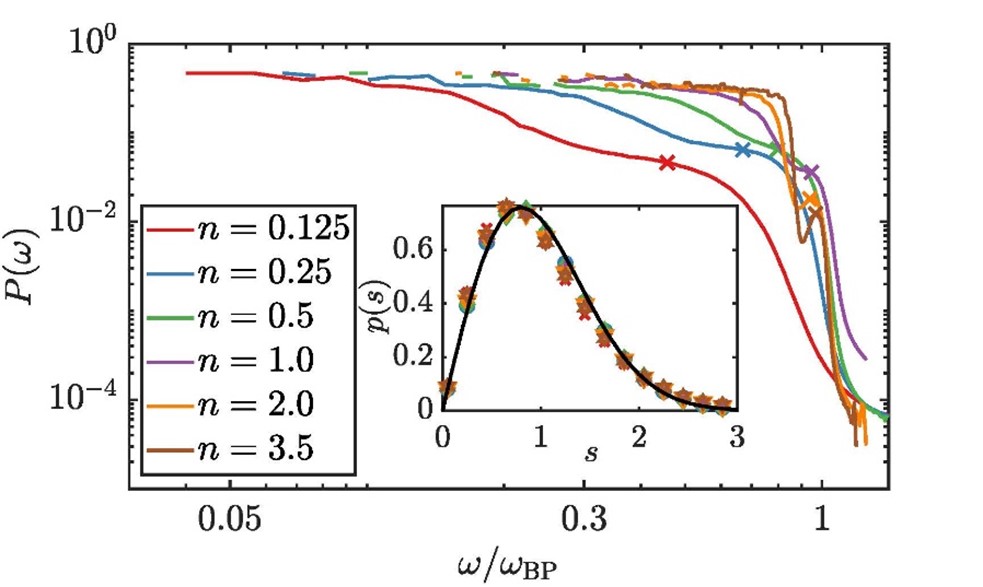School Seminar: Professor Matthias Fuchs, Universität Konstanz
Speaker: Professor Matthias Fuchs
Host: Professor Peter Harrowell
Title: Vibrational phenomena in glasses at low temperatures captured by disordered harmonic oscillators
Abstract:
In disordered solids, the vibrations exhibit characteristic anomalies. Even in the absence of thermal fluctuations at T=0, sound is damped via Rayleigh scattering. There is an excess in the vibrational density of states compared to Debye’s law, called boson peak and seen universally in scattering experiments. Computer simulations show that the modes are not extended plane waves but coupled nevertheless. Their spacing of eigen-frequencies shows level repulsion, arising in systems of coupled random oscillators, as Wigner had surmised for the spectrum of random matrices taken from the Gaussian orthogonal ensemble (GOE). Mezard, Parisi, and Zee had suggested that the Euclidean random matrix (ERM) ensemble should apply, which describes particles vibrating harmonically around random positions. For not too high disorder, it captures sound at low frequencies damped by scattering from elastic heterogeneities, random modes at intermediate, and localized modes at high frequencies [1]. We present numerical diagonalization of ERM models with different disorder [2], and theoretical approaches to stress and strain fluctuations to study strong disorder. An instability related to jamming in granular materials then arises separating stable from unstable solids.

Fig. Mean participation ratio P(ω) in a Gaussian ERM ensemble with increasing disorder (smaller n) [2]. Inset, Wigner’s surmise for the spacing of eigenvalues in the GOE holds for a plateau region in P(ω) (marked by x).
References
- Vogel and M. Fuchs, Vibrational phenomena in glasses at low temperatures captured by field theory of disordered harmonic oscillators, Phys. Rev. Lett. 130, 236101 (2023).
- Baumgärtel, F. Vogel, and M. Fuchs, Properties of stable ensembles of Euclidean random matrices, Phys. Rev. E 109, 014120 (2024).
Bio: Prof. Fuchs completed undergraduate and graduate studies at the Technische Universität München with a PhD awarded in 1993. After a postdoc at the University of Illinois, he was awarded a four year Heisenberg Fellowship that included time spent at the University of Edinburgh and the Institute Charles Sadron. Since 2004, Matthias has been Professor of Theoretical Physics at the Universität Konstanz.

